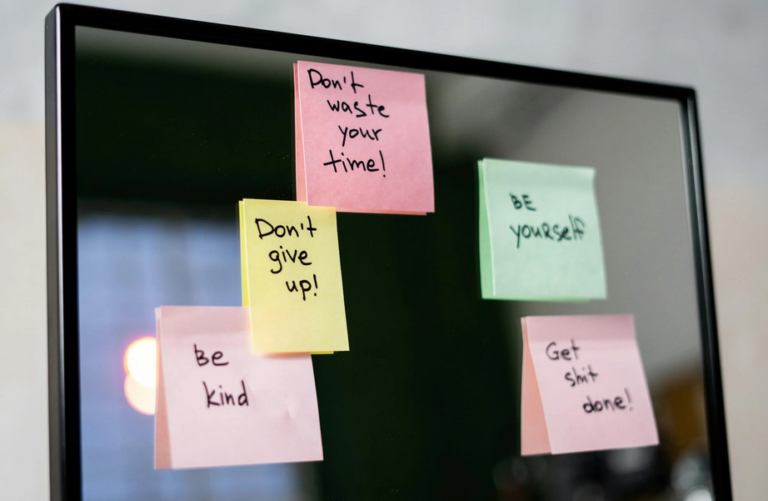Stress is something we all encounter, whether it's a tight deadline at work, an unexpected bill, or just the daily grind of life. While a little stress can be motivating, too much of it can wreak havoc on our health and happiness. It’s easy to get caught up in the hustle, but managing stress is essential for living a balanced life and finding ways to beat burnout before it takes a toll on your well-being.
Table of Contents
Beat Burnout: The Holistic Stress Management Plan You Need
1) Understanding Stress: The Silent Saboteur
2) The Holistic Fitness Approach to Stress Management
2.1) Mind-Body Connection: Start with Awareness
2.2) Physical Activity: Move to Manage Stress
2.3) Nutrition: Feed Your Body, Fuel Your Mind
2.4) Rest and Relaxation: The Art of Letting Go
2.5) Emotional and Spiritual Well-being: Cultivating Inner Peace
3) Bringing It All Together: Your Holistic Stress Management Plan
Understanding Stress: The Silent Saboteur
Before we dive into the solutions to beat burnout, let’s get clear on what stress actually is. Stress is your body’s way of responding to any kind of demand or threat. When you feel threatened, your nervous system responds by releasing a flood of stress hormones, including adrenaline and cortisol, which prepare the body for emergency action. This is often referred to as the “fight or flight” response.
In small doses, stress can be positive. It can help you stay focused, energetic, and alert. But when stress becomes chronic—when it doesn’t go away and you’re constantly in “fight or flight” mode—it can start to affect your health, mood, productivity, relationships, and overall quality of life. Managing stress effectively is key to beating burnout and maintaining a balanced life.
The Holistic Fitness Approach to Stress Management
Holistic fitness is about more than just physical health; it’s about nurturing the whole person—body, mind, and spirit. This approach is effective because it addresses all areas impacted by stress, helping you beat burnout holistically.
1. Mind-Body Connection: Start with Awareness
Stress often begins in the mind but manifests physically, like headaches or muscle tension. Becoming aware of this connection is the first step in managing stress and learning to beat burnout before it escalates.
Mindfulness: Mindfulness is all about staying present and fully engaging with what’s happening right now, rather than getting lost in worries about the past or future. Practicing mindfulness can help you become more aware of how stress is affecting you. Simple mindfulness exercises, like focusing on your breath or observing your thoughts without judgment, can reduce stress and help you feel more centered.
Meditation: Meditation goes hand-in-hand with mindfulness. It’s a practice that allows you to slow down, focus, and calm your mind. Even just a few minutes of meditation each day can reduce stress, improve concentration, and boost your overall sense of well-being. And the best part? You don’t need any special equipment or skills to get started—just a quiet space and a few minutes to yourself.
2. Physical Activity: Move to Manage Stress
Exercise is one of the most powerful stress management tools available. Physical activity helps reduce stress hormones like cortisol and increases endorphins, which are your body’s natural mood lifters. But holistic fitness isn’t just about breaking a sweat; it’s about finding the right kind of movement that suits your body and makes you feel good.
Yoga: Yoga is a fantastic option because it combines physical movement with breath control and mindfulness. It’s not only great for flexibility and strength but also helps calm the mind and reduce stress. Whether you’re doing a gentle restorative practice or a more vigorous flow, yoga can be adapted to fit your needs and preferences.
Cardio: If you prefer something more high-energy, cardio exercises like running, swimming, or cycling can also be incredibly effective. These activities get your heart rate up, which can help burn off some of that pent-up stress. Plus, the rhythmic nature of these exercises can be almost meditative, helping you clear your mind.
Functional Movement: This involves exercises that mimic everyday activities, helping you move more efficiently in daily life. Functional exercises can be a great way to improve your overall physical health while also reducing stress, as they promote a balanced body and help prevent injury.
The key is to choose physical activities that you enjoy and that make you feel good. Exercise shouldn’t feel like a chore—it should be something you look forward to because it helps you release tension and boosts your mood.
3. Nutrition: Feed Your Body, Fuel Your Mind
What you put into your body can have a huge impact on how you manage stress. A balanced diet that includes plenty of fruits, vegetables, whole grains, and lean proteins can help stabilize your mood and energy levels, making it easier to handle stress and beat burnout when it comes your way.
Mindful Eating:Mindful eating involves paying attention to what you eat and how it affects you, making healthier choices easier. For example, a high-protein diet can help you stay full and energized, preventing stress-eating that leads to more stress.
Stress-Reducing Foods: Certain foods can actually help reduce stress. For example, foods rich in omega-3 fatty acids (like salmon and walnuts), magnesium (like leafy greens and nuts), and antioxidants (like berries) have been shown to reduce stress levels and improve overall mood. On the other hand, it’s a good idea to limit caffeine, sugar, and processed foods, which can spike your stress levels.
Hydration: Don’t forget to stay hydrated! Dehydration can exacerbate stress, so make sure you’re drinking enough water throughout the day. Herbal teas like chamomile or green tea can also be soothing and have stress-relieving properties.
4. Rest and Relaxation: The Art of Letting Go
Your body and mind need time to recover and recharge, especially when you’re dealing with stress. Without adequate rest, stress can build up and lead to burnout.
Sleep: Getting enough quality sleep is crucial for managing stress. When you’re well-rested, you’re better able to handle whatever life throws your way. Aim for 7-9 hours of sleep each night, and try to maintain a consistent sleep schedule. Create a bedtime routine that helps you wind down, like reading a book, taking a warm bath, or practicing relaxation exercises.
Relaxation techniques: Relaxation techniques like deep breathing, progressive muscle relaxation, or guided imagery help calm your mind and body. Pairing this with stretches, such as dynamic and static stretching, can further enhance relaxation and ease tension.
Unplugging: In our digital age, we’re constantly bombarded with information and stimuli, which can contribute to stress. Take some time each day to unplug—put away your phone, turn off the TV, and give yourself a break from screens. Spend this time doing something you enjoy, whether it’s going for a walk, listening to music, or just sitting quietly and enjoying the moment.
5. Emotional and Spiritual Well-being: Cultivating Inner Peace
Emotional and spiritual well-being are often overlooked in traditional approaches to fitness, but they’re a vital part of holistic stress management. Finding ways to connect with yourself and with something greater than yourself can help you find meaning, purpose, and peace, even in the midst of stress.
Journaling: Writing down your thoughts and feelings can be incredibly therapeutic. Journaling allows you to process your emotions, gain insight into your stress triggers, and develop strategies for coping. It’s also a great way to practice gratitude, which can shift your focus away from stress and towards the positive aspects of your life.
Spiritual Practices: Whether it’s prayer, meditation, or spending time in nature, spiritual practices can provide comfort and perspective. These practices help you connect with your inner self and with the world around you, which can be incredibly grounding and stress-relieving.
Community and Relationships: Don’t underestimate the power of connections. Spending time with loved ones, participating in group activities, or even volunteering can provide emotional support and reduce feelings of isolation. A strong sense of community can help you feel more resilient in the face of stress.
Bringing It All Together: Your Holistic Stress Management Plan
Creating a holistic stress management plan doesn’t have to be complicated. It’s about making small, intentional changes that add up over time. Here’s how you can get started:
- Identify Your Stressors: Take some time to reflect on the main sources of stress in your life. Understanding what’s causing your stress is the first step in managing it.
- Incorporate Mind-Body Practices: Start by incorporating mindfulness or meditation into your daily routine. Even just a few minutes a day can make a difference.
- Get Moving: Find physical activities that you enjoy and that help you feel good. Whether it’s yoga, running, or dancing, make movement a regular part of your life.
- Focus on Nutrition: Pay attention to what you’re eating and how it affects your mood and energy. Aim for a balanced diet that supports your overall health.
- Prioritize Rest and Relaxation: Make sleep a priority and incorporate relaxation techniques into your daily routine to help you unwind and recharge.
- Nurture Your Emotional and Spiritual Health: Find time for activities that bring you peace and joy, whether it’s journaling, connecting with others, or practicing a spiritual discipline.
Remember, managing stress is an ongoing process to beat burnout. It’s about building habits that support your health and making adjustments as needed. By taking a holistic approach, you’re not just managing stress—you’re creating a lifestyle that promotes overall balance, happiness, and health, all while working to beat burnout.




